Our “stuff” includes
- Facilitation: meetings, conferences, public consultation, stakeholder engagement
- Change Management: project leadership, performance conversations
- Training: Facilitation, Change and Innovation, Performance Management
- Leadership development programs customised for organisations or across sectors
- Getting into action on commitments and agreements
Get to know us and our approach with a short workshop
Advice and resources on Facilitation
- Resources and links
- Planning for Facilitation – the 3 Big P’s

- About facilitation – thinking big and thinking simple
The make stuff happen TOOLBOX
We have a robust repertoire of tools to deliver results, based on extensive testing and problem solving in organisation, such as:
The Stakeholder Wheel – dialogue on different stakeholders perspectives
Conversation Cafe – intensive small group discussion processes to develop project ideas, strategies, directions (and we have applied variations of this in different contexts eg the Strategy Cafe for strategic planning sessions)
The Continuum – simple kinaesthetic exercises to quickly see where a group is up to
The Team Challenge – a highly energetic project development process
Future Perfect – thinking into the desired future and measuring progress
Theory U – a design for managing complex and uncertain futures
WORKSHOPS
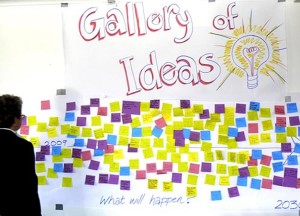 We promise a high energy, high impact experience to bring specific benefits to your team or organisation. make stuff happen can give you a workshop that will make a difference. From a two-hour introduction, to longer term change programs across whole organisations and over longer periods of time we work in ways that initiate and support change.
We promise a high energy, high impact experience to bring specific benefits to your team or organisation. make stuff happen can give you a workshop that will make a difference. From a two-hour introduction, to longer term change programs across whole organisations and over longer periods of time we work in ways that initiate and support change.
In addition to the workshops below we also offer SHORT WORKSHOPS – spend two hours making stuff happen for your organisation.
Conversations for Performance – a half-day workshop on conducting feedback conversations, how to give (and just as importantly) receive feedback on performance. The Great Australian non-conversation. Read this post from our blog
Inside Out Leadership – a program to support and develop leadership skills in emerging and to refresh experienced leaders, over a time frame of 6 to 8 months, using action based learning, we cover
- Generating collaboration – run great meetings that get results, tools and processes for effective meetings.
- Thinking on your feet – practice real skills in improvisation
- Doing change – knowing yourself and working with difference
- Figuring it out – analysis of driving forces and reluctant stakeholders, creative problem solving
- Skills for managing change – communication, participation, standing up and speaking out
- Networking – it’s not just schmoozing, it’s about building momentum.
- Tell your story – build an authentic narrative, turn jargon and business babble into language that brings people alive. Make more sense to more people, be direct, see instant results.
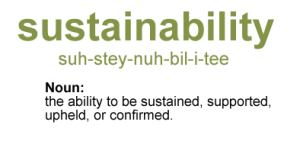 The Sustainability Snapshot – for small to medium enterprises that want to save money and do the right thing, we have the tools and experience to help with
The Sustainability Snapshot – for small to medium enterprises that want to save money and do the right thing, we have the tools and experience to help with
- initial measurement – where are you on the ladder?
- identifying the low-hanging fruit – most companies can find and implement changes that will affect the bottom line quickly with low expenditure
- engaging your staff – tools and strategy for change
- creating strategies for improvement
- networking with others for mutual benefit
Make Groups Happen – build that team with meaningful interaction and commitment, create engagement AND results.
- Problem solving – Use improvisation techniques in groups to stimulate engagement and find fresh eyes on old problems
- Harness difference – navigating differences in thinking and perspective can be challenging; harnessing difference can lift an idea, a team, or a whole business to a new level.
- Do conflict better – What does unhealthy conflict do? What does conflict avoidance cost? Build norms for healthy approaches to difference and conflict
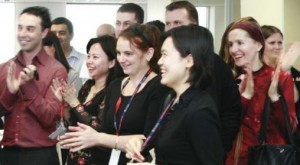 Facilitation Skills – one and two day workshops
Facilitation Skills – one and two day workshops
Is your common experience of meetings boredom and time wasting? Do you and your colleagues often seem to work at cross-purposes?
We can help you make your time count: leading dynamic discussions, influencing and inspiring groups, making conflict work for you, getting great results.
Attend our one day course “Facilitation Essentials” or two-day course “Face2Face: Engaging People in Groups”. Build your capacity to:
- Run purposeful meetings, clarify expectations, use techniques that fit your purpose
- Find out why facilitation is such a valuable skill
- Make the fundamental distinction between content and process – what is the meeting about and how is it being conducted
- How to engage participants in spirited interaction and robust conversation
- Build dialogue between participants – find and expand the common ground
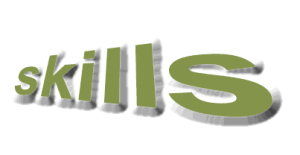 Facilitation – 2. advanced facilitation skills
Facilitation – 2. advanced facilitation skills
This is an opportunity for people with some facilitation experience to hone your skills and build your confidence. The course is designed to improve your ability to get results from your client groups.
- Session design and planning – designing for purpose, closing the distance between the client’s expectations and the reality of the group
- Experiential techniques – improvisation, kinaesthetic activity, storylines
- Dealing with difficult people – power in groups
- Make conflict work for you – develop a robust approach to healthy conflict
- Know what to do when the meeting goes ‘pear-shaped’
- Asking good questions – complex, provocative, high quality prompts
- Proactive engagement with your client and participants – testing assumptions, fine tuning the agenda
- Decision making tools and approaches
“Influencing skills for change agents”
- Engender purpose and confidence in others
- Influence groups and individuals without manipulation
- Create openness, options and movement amidst the doom and gloom,
- Be coherent, flexible and engaging with diverse groups
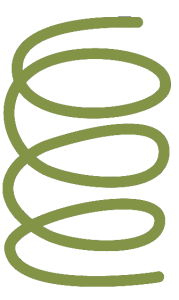 “Strategic Change Management”
“Strategic Change Management”
- Paradigms for Change – what you see determines what you do and what results you get
- The three stages of change: prepare, engage, persist.
- The personal, the social and the systemic. Putting them all together.
“Conversations for Performance”
- Practice the ‘crucial conversations’ that can challenge staff performance
- How to give (and just as importantly) receive feedback on performance
“Resilience in the face of change”
- Build your resilience in ‘tricky’ situations
- Be proactive – step out, step up
- Managing transitions, the hard part of change.
- Managing priorities when there is never enough time
